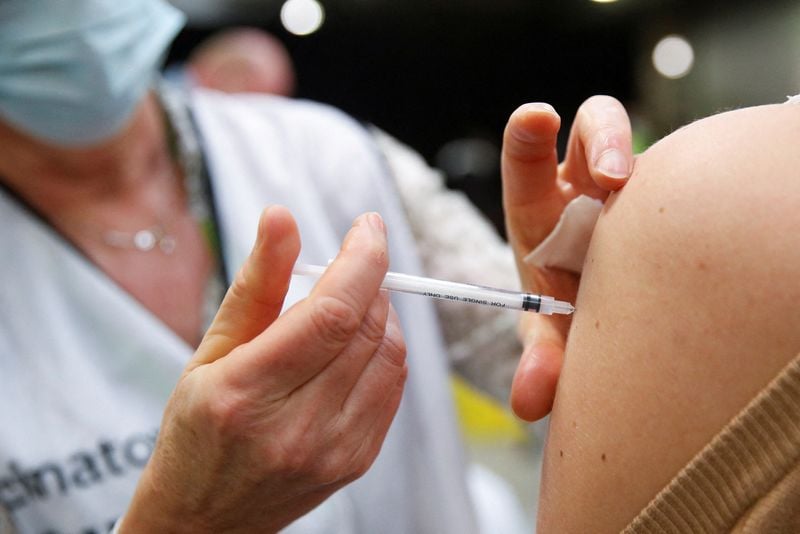WASHINGTON, D.C. — The U.S. Food and Drug Administration said Tuesday it will require new clinical trials before approving annual COVID-19 booster shots for healthy Americans under the age of 65, narrowing eligibility to older adults and those at higher risk of severe disease.
If approved, this new ruling could impact many schools and government-operated institutions in New Jersey that are still requiring COVID-19 vaccinations for participation.
The move marks a shift in federal vaccine policy, reflecting a reassessment of the benefits of repeated annual vaccinations for the general population. The FDA cited the need for updated data as COVID-19 enters a new phase, with widespread immunity from prior infections and vaccinations.
FDA Commissioner Marty Makary and vaccine regulator Vinay Prasad outlined the agency’s reasoning in a perspective published in the New England Journal of Medicine. They wrote that “the benefit of repeated annual shots for healthy adults was uncertain” and called for updated trials to justify routine use in lower-risk groups.
This change means pharmaceutical companies seeking approval for new boosters targeting healthy, non-elderly adults will need to conduct additional human trials rather than rely solely on preclinical or early phase data. It is expected to slow the timeline for booster availability in the general population under 65.
The updated policy does not affect current booster recommendations for people aged 65 and older, or those with underlying medical conditions. These groups remain eligible for annual shots without new trial requirements.
FDA recalibrates booster approach for broad population
The decision follows months of public health debate over whether repeated COVID-19 vaccinations remain necessary for people not at high risk of complications. While boosters have shown efficacy in reducing hospitalizations among older adults, their benefit in younger populations with prior exposure has been less clear.
The FDA said it will continue to monitor viral evolution and vaccine performance. Any changes to vaccine strain composition will still follow recommendations from advisory panels and international surveillance data.
The Centers for Disease Control and Prevention has not yet issued updated guidance but is expected to align with the FDA’s framework during upcoming advisory meetings.
The policy change adds a regulatory hurdle for drugmakers such as Pfizer and Moderna, who have previously received streamlined approvals for booster doses under emergency or accelerated pathways.
